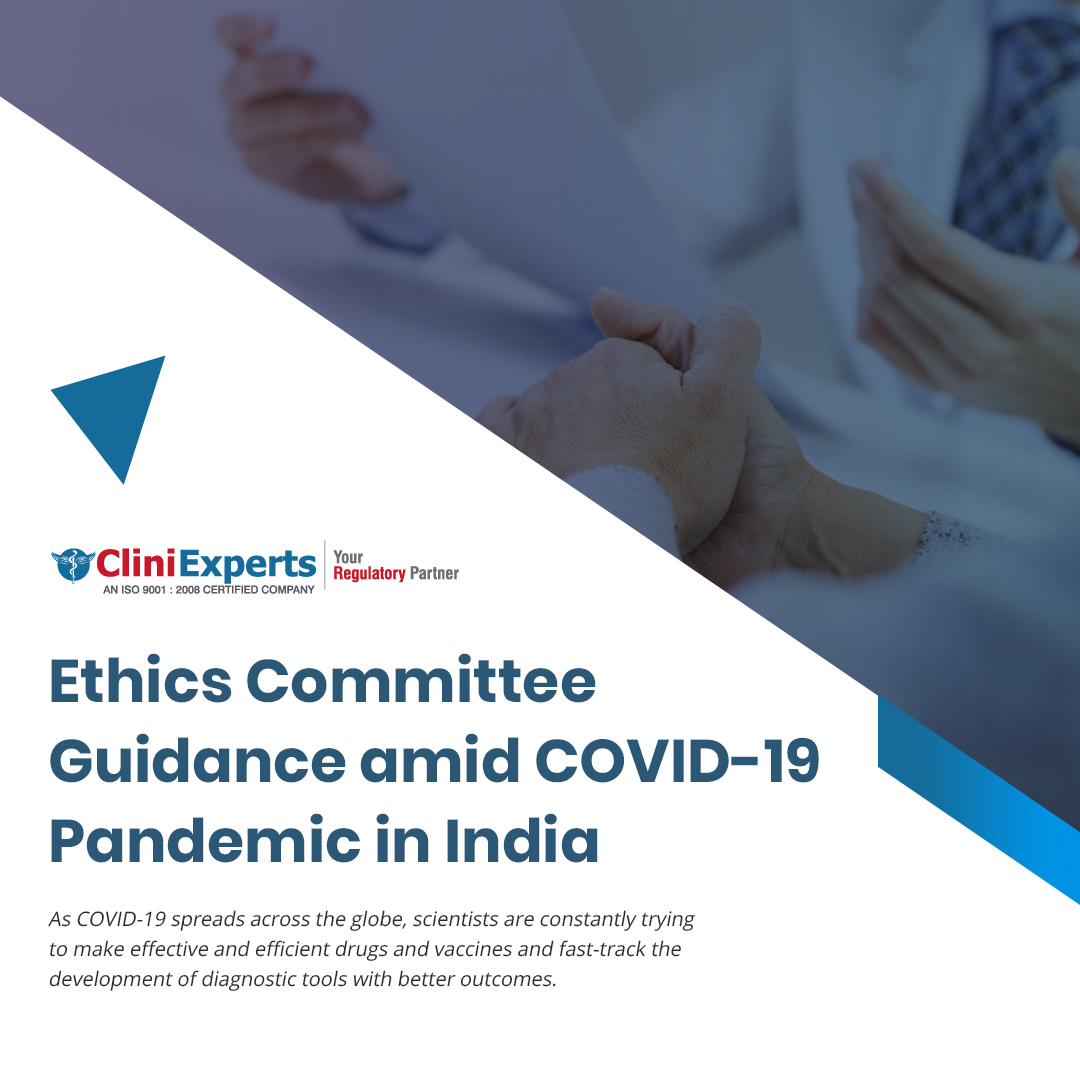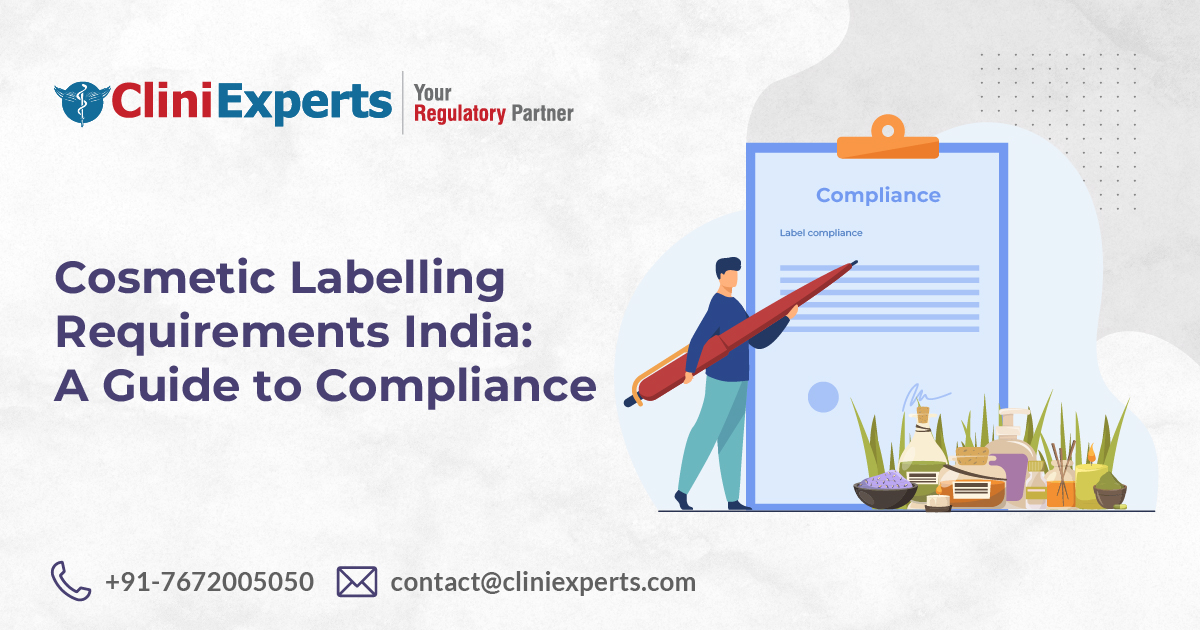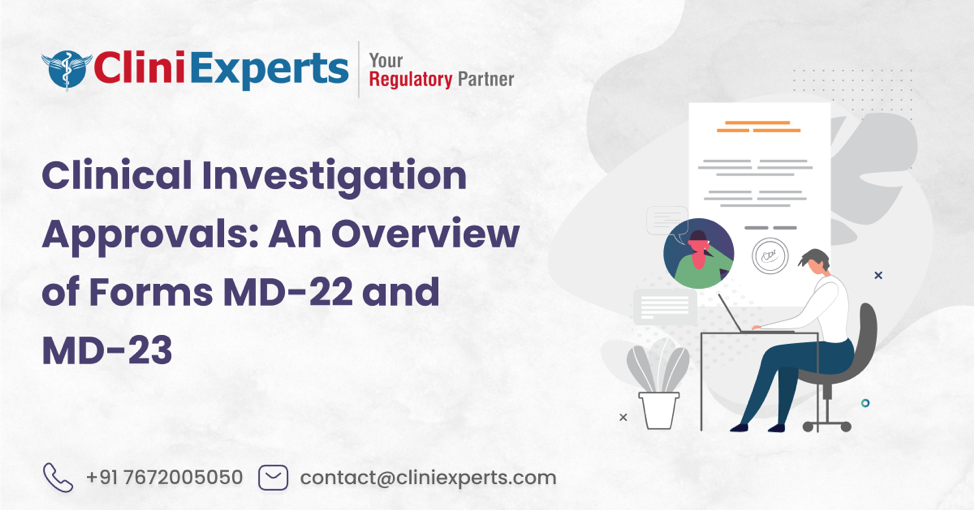Table of Contents
Ethics Committee Guidance Amid COVID-19 Pandemic In India

As COVID-19 spreads across the globe, scientists are constantly trying to make effective and efficient drugs and vaccines and fast-track the development of diagnostic tools with better outcomes. The present situation demands research on a priority basis without compromising scientific validity and ethical requirements keeping the protection of patient’s rights, safety, and well-being of the research patients. Ethics preparedness is the capability of the public health system to protect and have the ability to quickly respond to by having in place an ethical framework that would build trust and guide measures to recover from health emergencies.
ICMR Bioethics unit, NCDIR, Bengaluru, along with COVID19 National Ethics Committee (CoNEC), released a guidance document regarding the ethical conduct of clinical research in India. The role of ECs is essential in reviewing protocol in this emergency.
General Principles
The four basic principles are respect for persons (autonomy), beneficence, non- maleficence, and justice must guide research to protect the rights, safety, dignity, and well-being of research participants while conducting Biomedical and Health Research. These basic principles are further expanded into 12 general principles:
- Principle of Essentiality
- Principle of Professional Competence
- Principle of Voluntariness
- Principle of Maximization of Benefit
- Principle of Non-exploitation
- Principle of Institutional Arrangements
- Principle of Social Responsibility
- Principle of Transparency & Accountability
- Ensuring Privacy & Confidentiality
- Principle of Totality of Responsibility
- Principle of Risk Minimization
- Principle of Environmental Protection
Ethical Issues
Based on the type of risk involved, the EC must decide on the kind of review required (exempted, expedited, full committee).
| Type of Risk | Probability of harm or discomfort is nil or not expected. |
| Minimal risk | Probability of harm or discomfort anticipated in the research is not greater than encountered in routine life activities/ serious harm or adverse event is unlikely |
| Minor increase over minimal risk or Low risk | Increment in probability of harm or discomfort is only a little more than the minimal risk threshold. Such research should have a social value. Social risks, psychological harm and discomfort may also fall in this category. |
| More than Minimal/high risk | Probability of harm or discomfort anticipated in the research is invasive and greater than minimal risk or interventional study. |
- Conflict of interest
Maintaining confidentiality of research related data on COVID-19 and its publication is important to protect the privacy of individuals and avoid any stigmatization, discrimination against them.
- Community Engagement
Education of the public or communities about pandemic (COVID-19 infection).
- Post research access and benefit sharing
EC should ensure communication of the relevant research findings to the individuals/communities.
- Biological Material or datasets storage
Samples in COVID 19 pandemic can be expectorated sputum, endotracheal aspirate, or Broncho alveolar lavage (BAL), etc. Sometimes other body fluids, such as blood, plasma, dried blood spots, body fluids, urine, stool, tissues, and organs – stored or prospectively collected. Storage of infectious samples requires adequate safeguards. Creation of the repository of samples/ registry to generate forecasts of trends and identify hotspots and maintain individual confidentiality and privacy.
- Research collaboration
Collaborations to address possible inequity of expertise, access between partnering institutions and funding relationships.
- Public health and socio-behavioral research
- Role of Agencies or Sponsors & Governance of research
- Setting up community consultations and preparation of public educational material.
- Central regulatory authority to undertake expeditious review process for clinical trials for new drugs/ compassionate use and ensure safety/efficacy monitoring processes.
- In case of an outbreak of infectious diseases, monitored emergency use of unregistered and experimental interventions (MEURI) may be approved with the following precautions:
- Thorough scientific review followed by an ethics review / locally or by national level EC
- Tackle public concerns and ensure oversight by a local EC.
- Use GMP products, make rescue medicines/supportive treatment accessible.
- Community engagement and ensuring fair distribution of scarce supply
- Facilitate post-trial access of the successful investigational drug/ vaccine free of cost to the trial participants till the same is available in the market.
- Media must also play a responsible role in facilitating dissemination of useful information and not creating panic through spread of unauthenticated information.
- Maintenance of Biosafety in laboratories and hospitals
- There are four biosafety levels from BSL-1 to BSL-4 with specific controls for containment of microbes and biological agents. Virus isolation in cell culture and initial characterization of infectious viral particles recovered in cultures of SARS-CoV-2 specimens conducted in a Biosafety Level 3 (BSL-3) laboratory or BSL-4 laboratories which offer highest safety environments.
- The lab must ensure proper labelling and handling of specimens (suspected or confirmed for COVID-19) and relevant biosafety precautions and relevant regulatory standards to protect individuals and the environment/ testing in National Accreditation Board for Testing & Calibration Laboratories (NABL) certified labs.
- Regulatory requirements for biosafety labs should be strictly followed as prescribed by Department of Biotechnology (DBT) and Min. of Environment and Forests, Govt. of India.
- Personnel must be trained about additional precautions, decontamination with appropriate disinfectants, hand hygiene, use of personal protective equipment (PPE), or other physical barriers, biomedical waste handling to reduce the risk of exposure.
- Ensure that active screening of all staff at the hospitals is done daily and implement cleaning and disinfection protocol.
- Telemedicine can be used for research when possible with patient consent.
Ethical Review Procedures
- Research categories
There are 3 categories of research during COVID that may require ethics review.- New research directly related to COVID-19
- Ongoing non-COVID research
- New non-COVID research
EC must prioritize research review based on urgency and take needful steps to facilitate the review of new research and conduct ongoing research with needful amendments.
- Ethics Committee (EC)
- EC to ensure a thorough scientific and ethical review of research as per national guidelines.
- EC to be registered with appropriate agencies – DHR for biomedical and health research and
- CDSCO for regulatory clinical trials as per New Drug and Clinical Trial Rules, 2019. 3.2.3 EC to ensure that all COVID-19 related research (all clinical trials as well as biomedical and health research) be registered on Clinical Trial Registry of India (CTRI) and seek approvals as per relevant guidelines and applicable regulations.
- Member Secretary to categorise proposals into exempt/expedited/ or full review category as per National Ethical Guidelines and plan next steps for fast track review.
- Quorum for decision-making should have a minimum of five members, including both medical/non-medical and technical/non-technical members with one non-affiliated member.
Table 2: Ethical issues related to reviewing a protocol Social values Scientific design and conduct of study Review of informed consent process Benefit–risk assessment Selection and recruitment of participants Qualification & adequacy of study sites Payment for participation Disclosure of conflict of interest Medical management plan and Medical management plan and CommunityCommunity PrivacyPrivacy
- Special Cases
Multiple ECs and Sub ECs for expedited protocol review - Ethics Review
- Researchers should submit research proposals in the ICMR Common Forms for Ethics Review as soft or hard copies enclosing required documents. (http://ethics.ncdirindia.org/Common_forms_for_Ethics_Committee.aspx)
- The EC should adopt/ include an SOP for Emergency Research review
- Submission of e-copy of research protocol and relevant documents followed by their screening by Secretariat for completeness and categorization as exempt/ expedited review/ emergency full committee review depending on the urgency and need.
- Conduct of virtual or Tele/Video conferences
- Review of Multicentre Research
One main designated EC can review multicentre research in India for fast track decision making. - Review & Monitoring
Continuous evaluation of the progress of ongoing proposals, monitor approved study site for compliance, review SAE reports, protocol deviations/violations/ non-compliance/ DSMB reports/ any new information/assess final reports. - Decisions on Ongoing research and studies
The impact of COVID-19 on ongoing and existing studies, ongoing recruitment and continued involvement of participants needs to be considered. - Review of new non-COVID research Giving priority to COVID research, even review of research related to chronic diseases and injury must be in the process. Review can be through virtual EC meeting ensuring appropriate scientific and ethical review and fulfilling the quorum requirements.
Informed Consent
- Informed consent process
Obtaining valid informed consent in humanitarian emergencies such as COVID-19 is a challenge due to practical difficulties in reaching out to a patient, who may be in a COVID ward, isolation or quarantine facility. In addition, the decisional capacity of the hospitalized patient with moderate or critical disease condition would be very low and it may not be possible to differentiate between reliefs offered and research components.
Informed consent is a continuous process involving three main components – providing relevant information, ensuring competence, ensuring comprehension and voluntariness.Table: Elements of ICD (Informed Consent Document) Elements of an ICD Additional Elements(optional) 1.Statement mentioning that it is research 1. Alternative procedures or treatment 2. Purpose of research and methods 2. Insurance coverage 3. Duration, frequency, methods 3. Possible stigmatizing condition 4.Benefits to participant, community or others 4. Biological material and data 5.Foreseeable risks, discomfort or inconvenience i. Current and future uses 6. Confidentiality of records ii. Period of storage, secondary use, sharing 7. Payment/reimbursement for participation iii. Right to prevent use of biological sample 8.Treatment and/or compensation for injury iv. Provisions to safeguard confidentiality 9.Freedom to participate/withdraw v. Post-research plan/benefit sharing - Electronic consent
Preparation of interactive formats like text, graphics, audio, video, podcasts, interactive website, platforms to explain information related to a study and to electronically document informed assent/consent. - Waiving consent
For seeking a waiver of consent, the researchers should justify the waiver which EC can approve a waiver in situations:- Research cannot practically be carried out without the waiver, and the waiver is scientifically justified like cluster randomization trials.
- Retrospective studies, where the participants are de-identified or cannot be contacted
- Research on anonymized biological samples/data
- Research during humanitarian emergencies and disasters, when the participant may not be in a position to give consent.
- When consent of the participant/LAR/permission is not possible due to the emergency, informed consent can be administered at a later stage, when the situation allows for it. If it is so envisaged, prior permission must be obtained from the EC.
Vulnerability
- Vulnerable persons are
- Healthcare professionals, security personnel, food suppliers
- COVID-19 patients
- Migrant workers
- Terminally ill patients
- Safeguards
- Safety of Healthcare workers in research
Ensuring safety to HCWs involved in research is the responsibility of institutions, sponsors, and local authorities. - Psychological and mental health
Providing positive mental support to COVID-19 patients and people in quarantine and isolation. Ethics preparedness can guide various stakeholders involved in the public health emergency for fair decision-making based on moral reasoning in the best interest of the population and thereby help make outcomes more ethical and acceptable to the public.
Reference:
- National Guidelines for Ethics Committees reviewing biomedical and health research during COVID-19 pandemic. Available at: https://www.icmr.gov.in/pdf/covid/techdoc/EC_Guidance_COVID19_06052020.pdf. Accessible on: 3 rd June, 2020.
- Ethics preparedness for infectious disease outbreaks research in India: A case for novel coronavirus disease 2019. Indian J Med Res. 2020;151(2): 124-131
Recent Posts
Organic Food Labelling In India| Certification, and Import of Organic Food in India

This Article is All About Organic Food Labelling In India and Certification, and Import of Organic Food in India. Explained in Detail About What is Organic Food labelling? Summary Short Description Wi..
Cosmetic Label Compliance India : A Guide to Compliance

Introduction Looking for Cosmetic Label Compliance India? Are you a cosmetic manufacturer or importer navigating the complex world of Indian regulations? Ensuring your product labels comply with the l..
Clinical Investigation Approvals: An Overview of Forms MD-22 and MD-23

Summary Short Description Strict regulatory protocols govern clinical investigations for medical devices. Central to this process are forms MD-22 and MD-23. Form MD-22 is an application to Central Lic..
HAVE A QUERY?
REACH US!Office
New Delhi
Unit No. 324 & 325, City Centre Mall, Plot No. 5, Sector 12, Dwarka, India - 110075
+917672005050
Bengaluru
RMZ Galleria, 1st floor, Ambedkar Colony, Yelahanka, Bengaluru, Karnataka, India – 560064
Call us on
Sales: +91 7672005050
Reception: +91-11-45214546
Timings
9 am to 6 pm (Monday to Friday)


